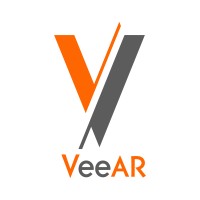Description
Requirements:
- 10–15 years of progressive experience in data architecture, machine learning engineering, and AI platform development.
- Proven track record delivering production-grade AI/ML solutions in cloud and/or edge environments.
- Experience in regulated industries such as MedTech, Pharma, or Healthcare; strong preference for familiarity with compliance and validation workflows.
- Hands-on expertise with modern data and AI technologies, such as Databricks, Snowflake, MLflow, Kubernetes, TensorFlow, and PyTorch.
- Bachelor's (required) or Master's degree in Computer Science, Information Systems, Engineering, or a related technical field.
- Advanced degree and/or certifications in one or more of the following areas is preferred: Artificial Intelligence, Machine Learning, Data Engineering, Cloud Architecture, or Enterprise Solution Architecture.
- Relevant certifications may include:
- Microsoft Certified: Azure Solutions Architect Expert
- Azure AI Engineer Associate
- Azure Data Engineer Associate
- AWS Certified Solutions Architect – Professional
- Databricks Certified Data Engineer Professional
Specialized Skills/Technical Knowledge:
- Deep expertise in AI/ML model development, including MLOps practices, model lifecycle management, and responsible AI principles (explainability, bias mitigation, auditability).
- Strong understanding of cloud-native data architecture, including Microsoft Azure (preferred), AWS, or GCP.
- Hands-on experience with the Microsoft Fabric ecosystem, including Data Factory, OneLake, Power BI, and integration with Azure AI and DevOps services.
- Experience designing and integrating data pipelines across SAP data platforms (S/4HANA, BW, Datasphere), Microsoft Dynamics, and Product Lifecycle Management (PLM) systems (e.g., Aras).
- Proficiency with Generative AI frameworks, Copilot integrations, and prompt engineering for productivity and business automation use cases.
- In-depth knowledge of regulatory frameworks such as ISO 13485, FDA 21 CFR Part 11, and data privacy laws (e.g., HIPAA, GDPR), especially in handling PHI/PII securely.
- Proven ability to embed privacy, security, and compliance controls into AI and data solutions, including encryption, access governance, and audit trails.
- Exceptional collaboration and communication skills, with the ability to influence technical and non-technical stakeholders at all organizational levels.
- Passion for healthcare innovation and a strong commitment to improving patient outcomes through ethical and intelligent use of data and AI.
- 20% travel; domestic and international
Key Skills
Education
Bachelor's degree
- Posted On: Today
- Experience: 15+ years of experience
- Openings: 1
- Category: Principal Data Architect
- Tenure: Contract - Corp-to-Corp Position

